Rethinking counterterrorism
The legacy of Paris attacks to figuring out ways to defeat ISIS
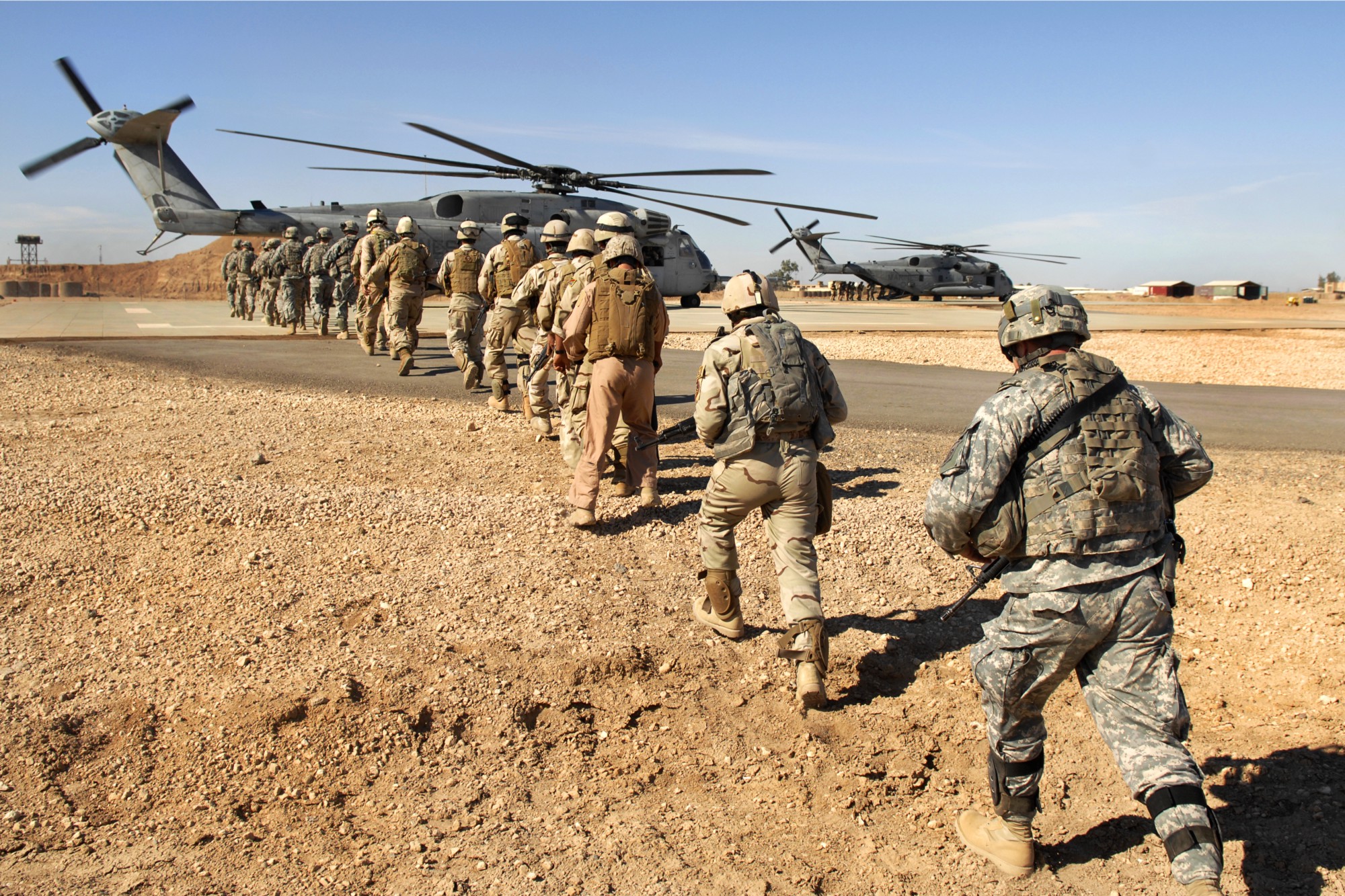
US and Iraqi Army soldiers at Camp Ramadi, in 2009. (Source: “The U.S. Army” | Public domain)
A personal narrative
It’s Friday afternoon and you’re in a well-known stadium, enjoying a football match between your national team and another one. It’s likely that you acknowledge the arbitrariness of the concept of “nation”. You probably know a “nation” represents nothing but a politically forged bound. There is no real relationship between you and your compatriots — you share a country with peoples of various ethnicities, religions, ideologies and cultures. Yet you cheer for the national squad alongside fellow countrymen. You wish your country’s team — your team — wins the match. It’s a struggle against a historical adversary. For all intents and purposes, you’re immersed in a classic. Some of the players ahead of you have been lauded as the world’s best. They are vying to score a goal. Meanwhile, you keep waiting for the sight of the ball inside the net, followed by the booming voices of an ecstatic crowd.
Out of the blue, you do hear a boom, although it isn’t vocal. It’s a weak one, coming from a distance. None of your fellows from the stadium has produced it. It takes some time for you to figure this out. You take even more time to realise what has really happened. Yes, a bomb just went off nearby. That’s right, you got yourself first-hand experience with a terrorist operation. As the athletes ran and dribbled across the grass, and its supporters watched expectantly, the outskirts of the stadium were under attack. Definitely, this wasn’t on the script. Eventually, the unforeseen surprise makes itself known to everyone. Predictably, massive panic ensues — you begin to doubt the state of your own safety. Information is still scarce, rumours spread as if they were airborne viruses, misperception makes people overestimate the facts, and the result is that you’re on the brink of collapsing, frightened by the events unfolding around you.
That’s when you remember you don’t have the luxury of “collapsing”. Heck, you’re not even allowed to express fear publicly. Of all the humans staying inside that stadium, you are the one who has the moral commitment to stand up and face the uncertainty. When the citizens are in dire straits, they turn to you. They turn specifically to the Herculean machinery you were hand-picked to command. Yet you also cannot keep a straight face, pretending nothing has ever taken place. You are a protagonist of this terrifying drama, and the “nation” cannot afford to lose you. Your minions worry about your well-being, and the next logical step is to get you back to safety. The terrorists cannot get you. As soon as protection is set up, you will have plenty of work to do. There is evil afoot that must be cast asunder, and the burden of this task falls on your shoulders. You’re the president of your own nation.
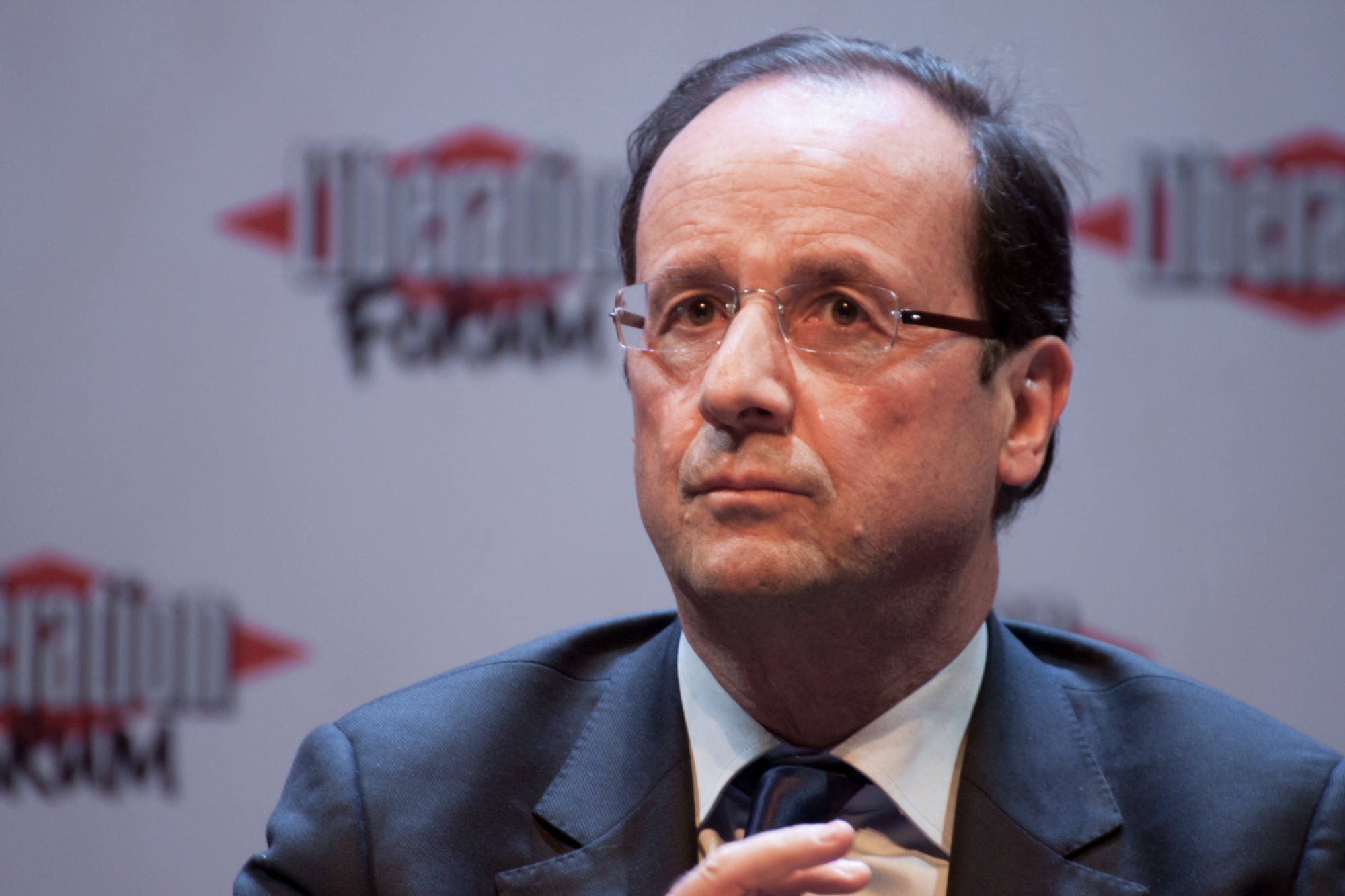
François Hollande, in 2012. (Source: “Wikimedia Commons / Matthieu Riegler” | Licence)
A public narrative
I cannot accurately guess what François Hollande, who has held office in France for the past three years, felt when he found himself at the heart of the attacks in Paris. Unlike the storming of Charlie Hebdo’s headquarters back in January, this time things were quite different. Hollande, although not a physical victim of the terrorists’ plot, was a victim nonetheless. He was inside the Stade de France, watching France vs. Germany, and there is a huge probability that either him or his entourage heard the bombings. In contrast to the fate of thousands of civilians who were also there, he was promptly evacuated. He carried the duty of enforcing law and order, and a whole counterterrorism operation would be assembled under his rule. It didn’t take long for him to show up on TV. Actually, he showed up even before the police raided the Bataclan music hall and freed the rest of the civilians. Barack Obama was another early comer. Standing on the other side of the Atlantic, he also made his remarks while people were still fighting for their lives.
There is something inherently unique about holding the presidency of a country. Our world is centred on nation states, and, for this reason, their leaders are often looked upon as sources of power, control, guidance, or some combination of these features. Some hours after the beginning of the Parisian drama, you can bet most Frenchmen tuned in their TVs and listened to Hollande publicise a pack of counterterrorism measures hastily prepared by his cabinet. However, for sure, his statement represents far more than a feel-good attempt at reassuring people. We had the opportunity to hear the first public words of a major player, both in France and in global politics, after he clearly got spooked by the terrorist assault. There is no better way to assess how he (alongside top French officials) would deal with the matter at hand. Specifically, two of his comments were really attention-grabbing. He said:
This is a terrible ordeal which once again assails us. We know where it comes from, who these criminals are, who these terrorists are…
What the terrorists want is to scare us and fill us with dread. There is indeed reason to be afraid. There is dread, but in the face of this dread, there is a nation that knows how to defend itself, that knows how to mobilize its forces and, once again, will defeat the terrorists.
In terms of public relations, this is a great way to get things going back to normality inside a traumatised and disordered France. The president mustered the courage to admit his share of fear, yet spoke in a way that implied France’s terrorism issues were resolved or, at least, coming close to an ideal solution. The controversy begins when we stop, think and realise that his claims couldn't be further from the truth. French intelligence officials knew neither who the terrorists were, nor from where they came. In fact, it seems they still are putting the pieces together on this. In light of recent events in the terrorism field (decapitations in Syria, Charlie Hebdo massacre…), it seems Hollande tried to make a premature linkage between the attacks and the actions of the (self-proclaimed) “Islamic State” (ISIS). Even though this connection turned out to be true (as far as we know, of course), the making of such assumptions on national — or, in this case, global — media has some worrisome implications. Not all terrorists are Middle Eastern and from ISIS.
A second objection to François Hollande’s speech refers to the notion that “there is a nation that knows how to defend itself… and, once again, will defeat the terrorists”. Let us speak in clear terms: France has not defended itself twice in a row, during a single year. First, its police weren’t able to protect Charlie Hebdo, a magazine that had attracted the fury of several Muslims worldwide (including, but not being limited to, fundamentalists) — i.e., a prime target for terrorism activities. Now we talk about an attack that occurred in a symbolic date (Friday the 13th), in a symbolic city (Paris), near a symbolic place (the Stade de France, as major footballers played and the Head of State watched). There is literally no good excuse for letting these attacks happen as they did. It is understandable the unpredictability of an ambush in a remote location; the same doesn’t ring true for attacks at major targets. What’s next? Failing to secure the Eiffel Tower? Surely, France did not protect itself properly, and did not defeat any terrorist (besides those who gave up their lives in Paris), hence there is no possibility of defeating them “again”.
The similarities between these two kinds of discourses is that the government tries to say it has the upper hand, when, actually, its security system is dismal. If the population is being told that the fight against terrorism is succeeding and almost over, people begin to raise their expectations, wishing for this grand finale to come. The problem is that there’s no real planning for ending this “War on Terror”. There is not even a single consolidated policy for dealing with ISIS and its affiliate/related groups. Against this backdrop of indecision and spreading of misinformation to the general public, lies what I consider to be the greatest counterterrorism dilemma of the last couple of years: something must be done to stop terrorism, however, as nobody devises a framework for doing it right, the work is moved over to ad hoc initiatives, temporary and out of the scope of the UN Security Council. This contributes to protracting the fight against the “Islamic State”, ultimately rendering the efforts to “degrade and destroy” it virtually useless.
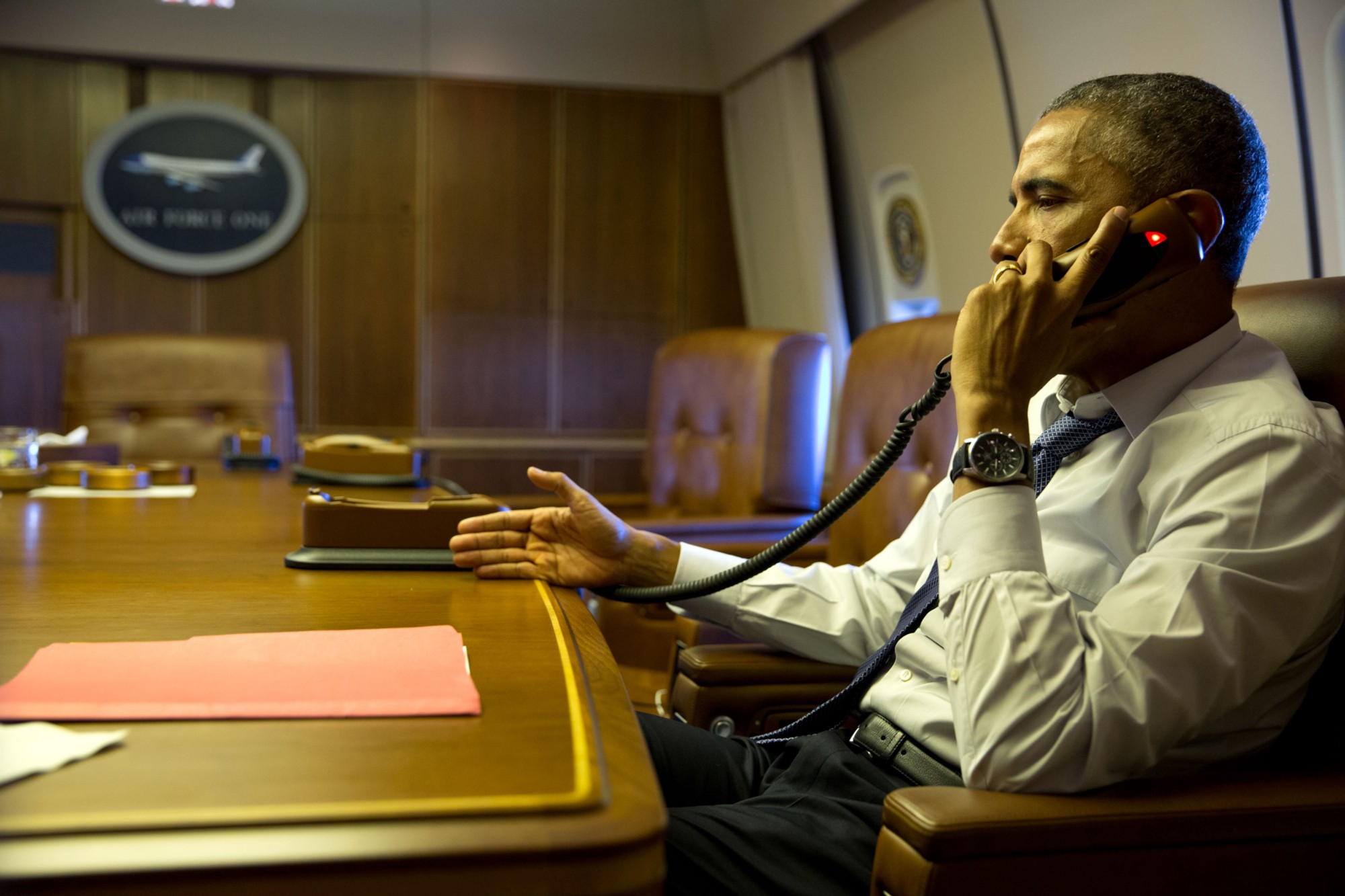
Barack Obama on the phone with François Hollande from aboard Air Force One, after the Charlie Hebdo shooting. (Source: “White House / Pete Souza” | Public domain)
A failed narrative
Less than a week following the attacks in Paris, the French government proudly announced its newest attempt to discourage terrorism within its borders, while simultaneously contributing to the interstate enterprise that has arisen due to the battle against ISIS. Sounding more like a massive retaliation than a real counterterrorism act, the French said they would drop no less than twenty powerful bombs in Syria. This is much like what has already been done by several world powers. According to their master plan, the bombs would destroy (alleged) ISIS strongholds, which means that what has been termed “collateral damage” might be thrown in the midst. You know this happens, for instance, when one tries to hit Afghan militants, but ends up massacring the staff of a hospital run by Doctors Without Borders. These are the kind of casualties more often than not neglected by the policy-makers who suggest and elaborate counterterrorism responses. I do not refer to intelligence analysts, nor to Army generals. Were we to trace the absurdity of decisions like this, we would likely be lead towards elected officials.
People who build a career through electoral processes have, quite obviously, a set of vested interests they must uphold. Even though their dependence on private-sector campaign funding might be crucial in some countries, the true characteristic that is present in virtually every single democracy is their dependence on votes. Voters are notoriously a part of the larger societal stratum we call “public opinion” — the very same “public opinion” that is prone to terrorism-induced mass fear. When terrorist attacks occur, society feels unsafe, and, in turn, demands state reprisal. These claims are more likely to hit elected officials, who, in a certain sense, must “pay back a debt” to their electorates. In the “developed West”, it is no coincidence that airstrikes were picked out as a means for “defeating” the “Islamic State”. Apart from nuclear bombing (evidently unviable), is there a better option in terms of promptness, low human cost, and superb display of strength, all of them characteristics that make a state look as if it is waging the right war campaign?
Airstrikes might be good for several military purposes. On the other hand, for eradicating a huge terrorist organisation, spread across vast swathes of foreign soil, and for inhibiting attacks in the “West”, this strategy falls short of political requirements. Air bombings are often erratic, unhelpful and illegal (according to International Law), and they usually leave behind a trail of dead innocents. The only reason for their deployment is that they are thought to be better than nothing, and way better (from the “Western” perspective) than putting boots on the ground. And even when states opt to use them, there are no guarantees that they will coordinate their military actions, and much less that they will, at the very least, use their strikes to help local troops do their field work. In the case of fighting ISIS, this kind of war planning has only been partially achieved between Russia and the Syrian Army. So far, the majority of states adopt temporary measures to handle ISIS, each with its own agendas.
The ultimate result of all this is the establishment of a battlefield in which the status quo is constantly changing — yet not evolving in any foreseeable direction whatsoever. Occasionally, “Islamic State” militants will conquer an important city or piece of land. Then, a couple weeks later, some state will succeed in bringing the location back to the Stone Ages with an immense assortment of explosive materials. Next we hear reports of ISIS showing up again, this time rallying their fighters a few miles away, getting ready for one more decisive battle. Meanwhile, we are gifted with stories of misplaced drone strikes, states using the fight against ISIS as a pretext for eliminating political opponents, weapon shipments getting robbed and being used by the wrong party, top-of-the-line Japanese SUVs in the hands of ISIS sympathisers, and scores of Syrians and Iraqians who were forced to close up shop and move on to a refugee camp.
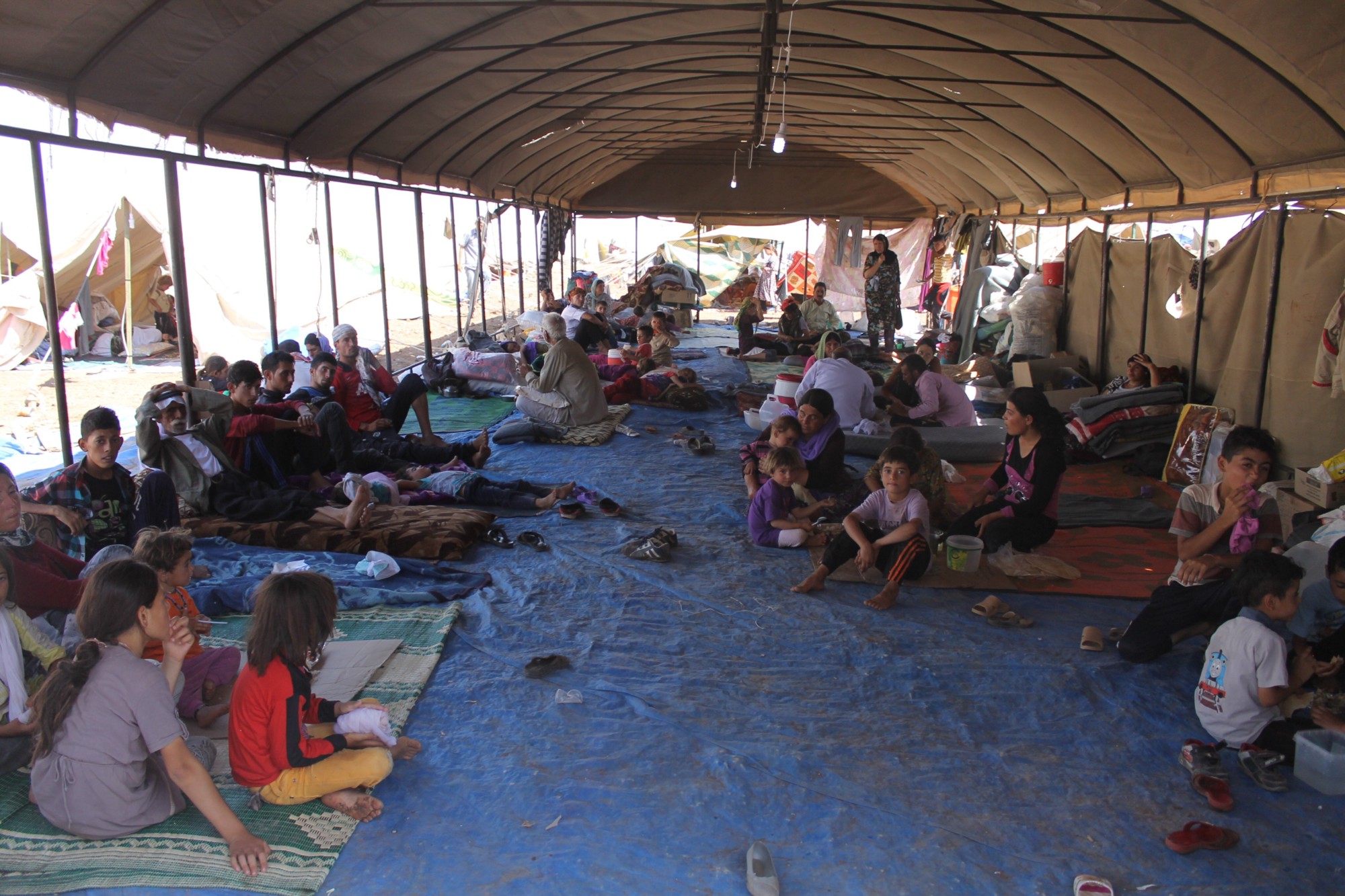
Some of the Iraqi refugees in Newroz camp. 12,000 refugees walked over 60km to get to safety. (Source: “Rachel Unkovic / International Rescue Committee” | Licence)
A hopeful narrative
As of now, the Syrian Civil War might just be called the “Syrian conundrum”. There is no adequate logic to guide neither the conflict nor the counterterrorism operations that take place within it. If the Middle East is usually considered a can of worms, the current status of Iraq and Syria is one in itself. The systematic overuse of bombings and other kinds of airstrikes has manifestly not contributed much to the ending of Mid-Eastern suffering. If anything, in certain circumstances, these practices have undermined even more the lives of civilians and combatants who take a stand against ISIS. That is why a reformulation of counterterrorism operations is paramount to achieving victory in this battle. As ISIS gains more active fighters by the day, and it recruits flocks of non-Middle-Eastern people to conduct their heinous assaults in the “West”, this rethinking exercise is a matter of urgency. Time is more than ripe for conducting such a process. In particular, six ideas could have a huge impact in turning the tables and ensuring the defeat of ISIS:
- Considering better intelligence coordination among the different states involved in the bombings: By pushing for effective intelligence sharing mechanisms, airstrikes would be able to happen where they are supposed to. This would reduce the potential for “collateral damage”, while expanding the scope of attacks in genuine ISIS facilities.
- Forging alliances with local actors — including guerrillas — for anti-ISIS ground support: By supporting (yet not arming) indigenous troops, the work that they already do will be able to achieve better results.
- Coming to terms with a consensual take on the status of the Syrian administration: With the UN Security Council gridlocked due to disagreements on the fate of president Assad’s government, no legitimate war progress can be made.
- Resisting the urge to mass-retaliate attacks at the “West”: As well-documented in Terrorism Studies literature, counterterrorism operations have better success when they are not experienced as an “absolute war” or a “clash of civilisations”. Limited wars usually have feasible endings.
- Contemplating the possibility of offering “Western” ground support against ISIS: Following years of war, the armies and militias of Iraq and Syria are already worn out. The “West” — in particular, the US — still holds considerable “hard power” advantage in comparison with the terrorists. While a ground operation (after the Iraq saga) would be difficult, a positive outcome could offset the costs associated with it.
- Acknowledging that the defeat of terrorism must also happen outside of battlefields: ISIS and other terrorist organizations thrive for mastery not only through actual violence, but also through several supporting tools. Propaganda campaigns, recruitment efforts, logistics operations, financial activities — all of these spheres of action must be contained, should the intention be an enduring disruption of terrorism.
In May 2013, former US president George W. Bush famously addressed the world, eager to publicise the ending of the Iraq war. Standing atop an aircraft carrier, near a huge banner that read “Mission Accomplished”, he said major military operations would grind to a halt. Almost three years following the president’s speech, we cannot help but notice the short-sightedness of his announcement. Unfortunately for many, we have not accomplished enough successes in counterterrorism. Terrorist attacks are routine in the Middle East, and constitute an increasingly grinding issue throughout the “West”. Our reactions in face of terror tend to favour illogical retaliations, to the detriment of lasting solutions. There is little incentive for debating changes to our national security models, especially as we become more and more dependent upon them. Until we acknowledge the need for rethinking counterterrorism, we will hear stories about the dead, the injured, and the troubled minds who take part in horrifying and inhuman acts of violence.
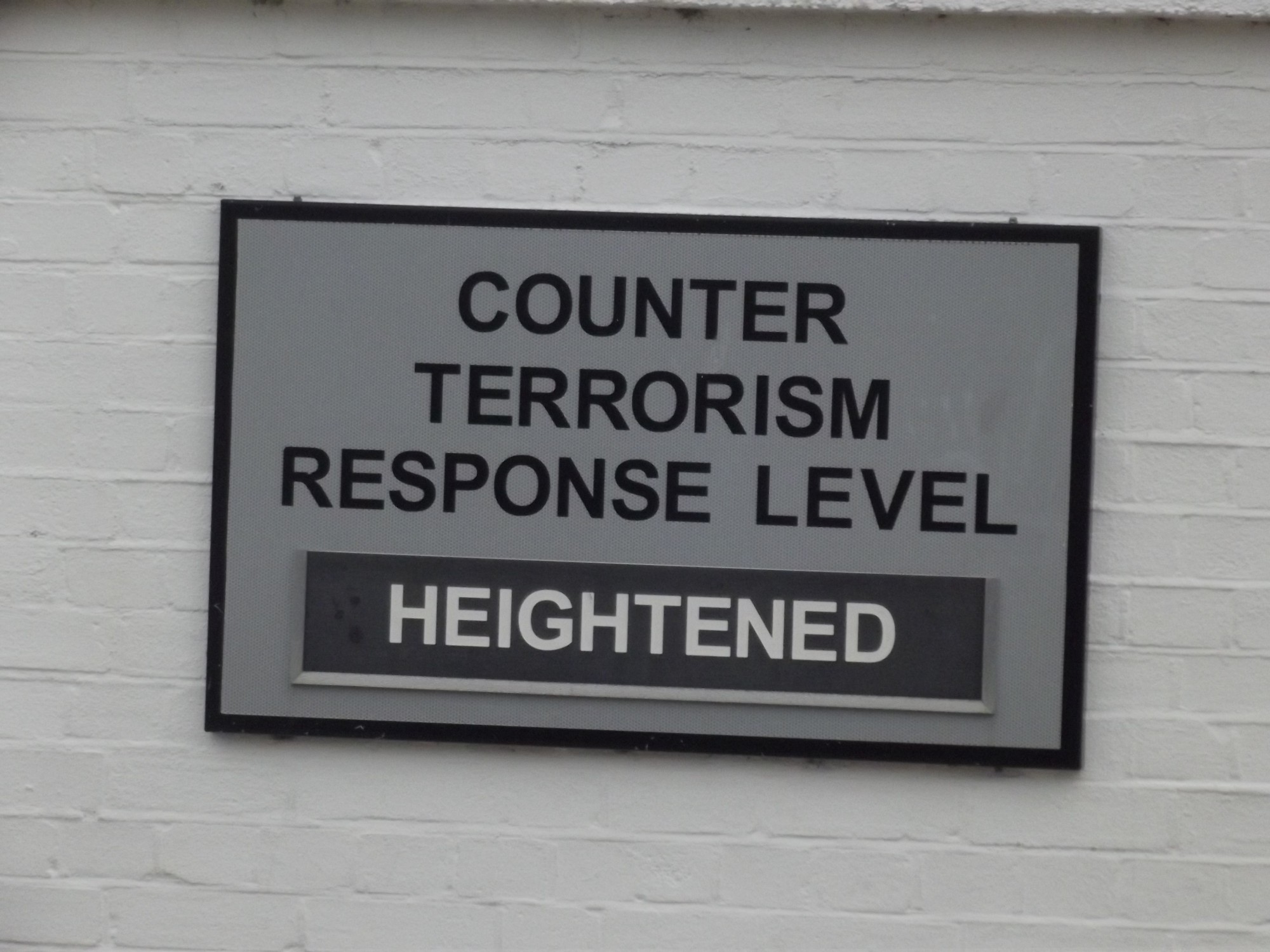
Sign at the Portsmouth Historic Dockyard, an open area of a British Navy base, in 2003. (Source: “Elliott Brown” | Licence)
Notes
- This article has been revised and edited by a great friend, João Vítor Braz. Without João’s help, this work would never have been completed.
Sources and related articles
- ‘It is horror’: French President Hollande’s remarks after Paris attacks
(The Washington Post) - I know Isis fighters. Western bombs falling on Raqqa will fill them with joy
(The Guardian) - What ISIS Really Wants
(The Atlantic) - Could ISIS Exist Without Islam?
(The Atlantic) - ISIS Finances Are Strong
(The New York Times) - ISIS is not a terrorist group
(Foreign Affairs)